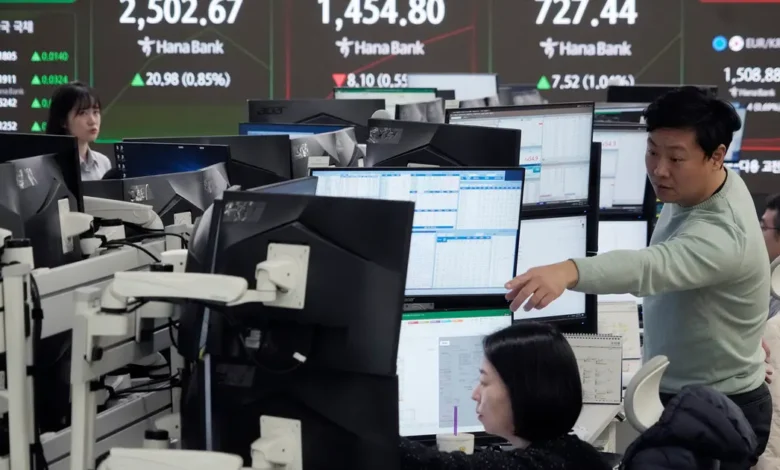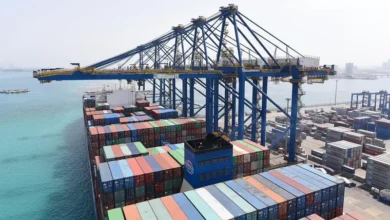Global shares trade mixed as investors weigh impact of US-China tariffs

Global shares traded mixed Wednesday as markets mulled the impact of tariffs being imposed by the US and China.
France’s CAC 40 shed 0.3 percent in early trading to 7,881.94, while Germany’s DAX fell 0.5 percent to 7,881.94. Britain’s FTSE 100 lost 0.2 percent to 8,558.31. US shares were set to drift lower, with Dow futures falling nearly 0.2 percent to 44,620.00. S&P 500 futures slipped 0.5 percent to 6,034.25. Earlier in the global day in Asia, Japan’s benchmark Nikkei 225 recouped earlier losses and was little changed, finishing up less than 0.1 percent at 38,831.48. Among Japanese issues, the stock price of Honda Motor Co. shot up 8.2 percent after Japanese media reports said its talks to set up a joint holding company with rival Nissan Motor Corp. were unraveling. Nissan stock tumbled 4.9 percent. Australia’s S&P/ASX 200 rose 0.5 percent to 8,416.90. The Hang Seng dropped 0.9 percent to 20,597.09, while the Shanghai Composite lost 0.7 percent to 3,229.49. South Korea’s Kospi jumped 1.1 percent to 2,509.27 as investors found bargains after the recent price dips and found optimism from the overnight Wall Street rally.
Some analysts see tariffs on China as separate from Trump’s moves against other trading partners. Trump may be more likely to keep tariffs on China longer, as he did in his first presidential term, to separate the US more from its geopolitical rival. Trump is pressing ahead with a 10 percent tariff on US companies importing things from China. And China retaliated on Tuesday by announcing its own tariffs on some US products and an antitrust investigation into Google. China’s 15 percent tariff on US coal and liquefied natural gas products, as well as a 10 percent tariff on crude oil, agricultural machinery, and large-engine cars imported from the US, won’t take effect until Monday. That leaves time for negotiations between Trump and Chinese President Xi Jinping. “Trade tensions haven’t exploded yet, but they’re simmering dangerously close to a full boil, and anyone brushing them off does so at their own risk,” said Stephen Innes, managing partner at SPI Asset Management. Trump on Monday agreed to delay his taxes on US imports of Canadian and Mexican products for a month. Some traders hope Trump would likely be turned off by the damage Wall Street would take if a worst-case long-term trade war were to occur. Trump has pointed in the past to the stock market as a real-time measure of his performance. But a trade war is still possible, and some analysts say more swings may be coming because Trump’s threats should be taken seriously.
In energy trading, benchmark US crude fell 40 cents to $72.30 a barrel. Brent crude, the international standard, declined 46 cents to $75.74 a barrel.
In currency trading, the US dollar slipped to 152.95 Japanese yen from 154.30 yen. The euro cost $1.0404, inching up from $1.0382.










